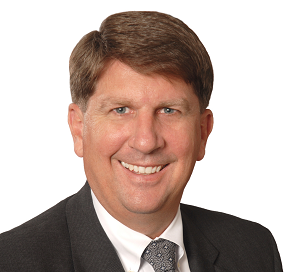After the Entrepreneurship Door Opens, Then What?
August 12, 2014

By Clark Kendall, an EO DC member and president of Kendall Capital
Sometimes the door to entrepreneurship opens because the corporate career door is closing. That’s the situation I found myself in almost a decade ago, when I was a global private banker with Royal Bank of Canada. After moving up the corporate career ladder in the banking and investment brokerage business, I was stuck.
Thankfully, to paraphrase the lyrics of bluesman Keb Mo, I found out that the door to entrepreneurship was open. In 2005, I launched Kendall Capital Management, an independent, fee-only investment advisory firm that provides financial planning, investment management and wealth management services in the Greater Washington, D.C. area. Today, with more than $100 million in assets under management at Kendall Capital, I couldn’t be more thankful that those corporate career doors had closed.
Once that door to entrepreneurial opportunity opens, you certainly don’t want it to slam in your face. To make the most of your move into entrepreneurship, you can profit from four lessons I have learned.
Be passionate. As an entrepreneur, you must have a passion for your business. It has to be more than a job. Just as a great doctor has a passion for making people well and increasing their quality of life, great entrepreneurs are passionate about helping people. Take Seth Goldman, co-founder of Honest Tea, who is living his passion for creating and promoting great-tasting, healthy, organic beverages while maintaining a commitment to sustainability and social responsibility.
In my own case, after working for high-end investment international investment firms, I discovered a passion for servicing the financial planning needs of “Middle Class Millionaires.” These are people who have accumulated $1,000,000 or more in investable assets, including doctors, attorneys and even thrifty schoolteachers.
Be an expert. I have made it my business to be an expert on the financial planning and investment needs of Middle Class Millionaires. Most of these people are making US$150,000 to US$300,000 a year. Whether or not they actually consider themselves to be millionaires, their finances are significant and require informed decisions in order to preserve, strengthen and grow what they have worked so hard to achieve.
Think long-term. Another key to entrepreneurial success is to realize that the time horizon for business growth is extended. Today, you should be thinking about where you want to be five or 10 years from now. Keeping that extended time horizon in mind will help you decide what you can do today to help you meet those five and 10 year goals. When we were a $25 million firm, for example, we made a list of things we would need to become a US$100 million company – down to the make and model of the printer a firm of that size would need.
Plan the downside. Three years after I started Kendall Capital Management, the 2008 financial crisis hit. Not only did revenue drop dramatically in tandem with the equity markets, but clients were dismayed at the performance of their investment portfolios. At the same time, the cost of professional liability insurance doubled because of the Bernard Madoff crisis. Meanwhile, with local banks laying off large numbers of people in 2009, the Maryland unemployment insurance rate doubled. For a fledgling financial services entrepreneur like me, it was the perfect storm.
How did we weather the storm? First and foremost, I cut my salary dramatically. After the crisis had passed in 2011 and we were back on solid footing, we implemented a strategic plan to create a new image that included hiring a marketing firm, redesigning our web site, stepping up client and prospect communications, and increasing market visibility through press coverage. That is how we are planning for the next downside.
Looking back, I’m glad the door to entrepreneurship didn’t open for me when I was in my twenties, like it did for Bill Gates and Mark Zuckerberg. I needed to work at other companies to gain experience and knowledge – and be hit with the painful reality that the corporate career door had closed. But I did find out, by learning the four fundamental lessons shared in this article, that the entrepreneurial door does indeed open to exciting new horizons.
Clark Kendall, founder of Kendall Capital Management in Rockville, Maryland, has over 30 years of experience in investment management and wealth management. He provides independent financial direction to Middle Class Millionaires in greater Washington, D.C. www.kendallcapital.com